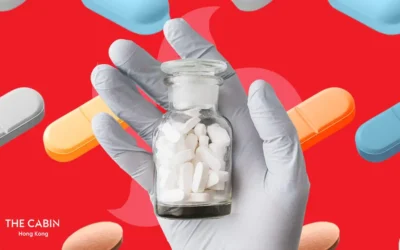What exactly is addiction? Could the abuse of substances or processes by an individual really be attributed to their genes or early childhood? These questions still raise intense debate amongst the general public and even practitioners working in the helping professions – so as an addiction treatment centre, we would like to answer them.

Addiction has long been thought of as an affliction dependent on someone’s personality, and it was believed that if you had an addiction problem then you were simply ‘weak willed’. In 1956, the American Medical Association affirmed that alcohol and substance abuse could, in fact, stem from an illness, and is not necessarily just a predisposition of a weak character. Yet, almost 60 years later, there are still people that view the disease of addiction as merely the signs of a morally inept character.
Is Addiction a Disease?
Recent advances in technology and vast improvements in the medical industry have enabled addiction to be studied more closely than ever before, and the overwhelming result from these new insights has been that yes – addiction is a disease. With new technology such as MRIs, we are finally able to see what is happening inside the brain of an addict, and this new information has been able to provide new understanding on how best to prevent and treat the disease of addiction.
These new studies have shown us that addiction is a form of neurological disease that prevents the user from coherently thinking about their actions while they are craving alcohol and drugs. These advancements have pinpointed the production of the chemical dopamine as the major cause of drug and alcohol abuse.
The brain releases dopamine when we do something that pleases us or makes us happy, and we generally release it in small amounts throughout our daily lives. This is particularly true for things such as sex and eating, and that is why we tend to crave these things. Drugs and alcohol mimic these neurological activities and get our brains to release large amounts of dopamine, thus our bodies start to crave the dopamine rush associated with the substance. This is particularly true with drugs such as cocaine or methamphetamines, which fool our brain into releasing huge amounts of dopamine, and once we adjust to these inordinate levels, our bodies stop enjoying simple everyday things that once provided pleasure.
Scientists have also proven that addiction is a genetic predisposition in 40-60% of all addicts, meaning that some people are born with genes that will make them more susceptible to addiction. This does not mean, however, that everyone born with these genes will become an addict.
There are three contributing factors that make someone more vulnerable to the disease of addiction:
- Genetics: People born with a certain genetic makeup are 50% more likely to become an addict of some sort. The chances are also heightened in people suffering from a mental illness such as depression or bi-polar disease.
- Environment: The disease of addiction cannot solely be put down to genetics, and environment plays a huge role in the development of alcoholism and drug abuse. Exposure to drugs or alcohol, peer pressure, and stress all contribute towards the risk of addiction.
- Age: While genetics and environment make up the core factors contributing to the risk of addiction, it can happen at any age, but it is widely agreed upon that the younger you start using drugs, the more likely you are to become an addict.
The disease of addiction does not only cover substance abuse, but also covers process addiction. Process addiction is a type of addiction that is attached to an activity rather than a substance, such as gambling, sex, porn and eating addictions. While some of the more detrimental physical effects found in substance abuse are largely absent in process addictions; the effects of the disease on the user are similar to that of a substance abuse disorder, and are largely to do with the chemical imbalance and release of dopamine in the brain.
Treatment for the Disease of Addiction
The most common and popular treatment methods are created around the 12 Step programme, and this is particularly true if you attend AA (Alcoholics Anonymous) or NA (Narcotics Anonymous) meetings. However many of the best rehab centres in the world base their treatment and recovery programmes on a lot more than just the 12 Steps.
The Cabin Addiction Services Group offer inpatient and outpatient addiction treatment centres in Hong Kong, Thailand and soon Australia. These centres treat process, alcohol and drug addictions, focusing on a more holistic, all-encompassing model of treatment. Our treatment programme focuses on three core areas:
- Cognitive Behavioural Therapy: This allows the programme to be customised for each person’s individual needs. Therapists will not only work on the behavioural aspects of the patient, but also on the cognitive happenings in the brain that are leading to their adverse behavioural problems.
- 12 Step Programme: This is a programme proven to work on the disease of addiction throughout the world, and hundreds of addicts and professionals in the addiction field will attest to its success as a treatment. At The Cabin, the 12 Step programme is explained in a non-religious way, thus allowing those who are of different religions, or no religion at all, to feel comfortable.
- Mindfulness Meditation: This is a combination of yoga and meditation that is successfully used to relieve addicts of their cravings, stress and fears. A positive mind-set is one of the most important keys to recovery, and help to prevent relapse.
It has been proven over and over again that the disease of addiction is exactly that, a disease. It is a neurological illness that inhibits the user’s thoughts and feelings. However, it is also documented that addiction is not just down to genetics, but factors like environmental situations and age can heighten the risk of developing an addiction problem.
However, with this new wave of technology we are finally starting to understand addiction like never before, and this can only help us move in a direction where addicts are getting the treatment and support they need to make a long and lasting recovery.


